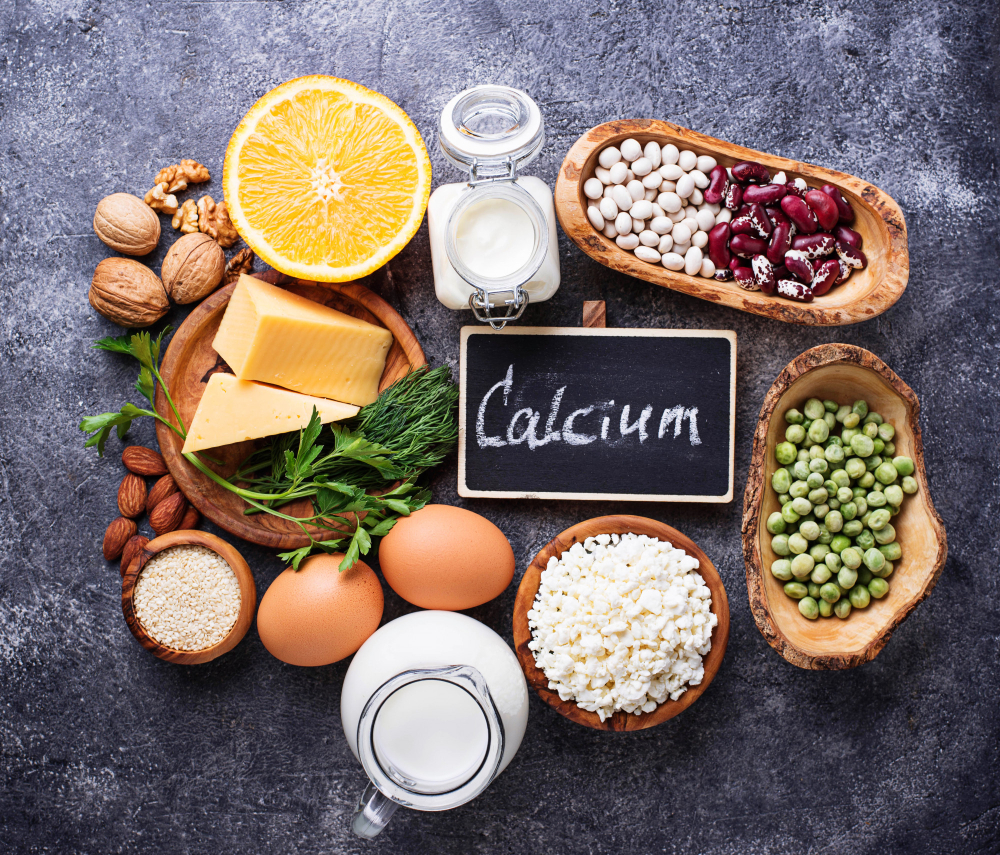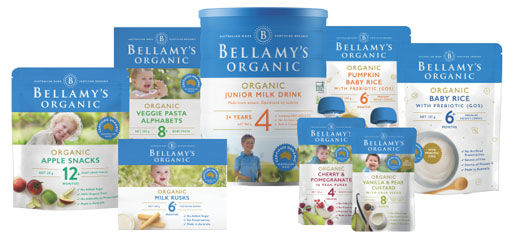Everything You Need to Know About Organic
Scientific understanding of the benefits of organic food has been rapidly growing, and because of this, the organic food industry is booming. But there remains an ongoing debate about whether there are in fact significant differences between organic and conventional food, so here we give you all you need to know about organic farming and food.
What does ‘organic’ mean?
The health and wellbeing of yourself and your family is paramount. This can make navigating the food labels on the products at your local supermarket an unsettling experience, as a lot of the product ingredients can read more like a science experiment than wholesome food.
Put simply, organic food is food that is farmed without the use of man-made fertilisers or pesticides. By choosing organic food, you can be certain that your food is all-natural and contains no added chemicals or genetically-modified organisms (GMOs).
Organic food is more beneficial than its conventionally-grown counterparts because it contains none of those added nasties. Most importantly, organic food doesn’t contain synthetic pesticides; an additive which can affect children’s immune systems and developing foetuses. Specifically, research suggests that pesticide exposure in young children can cause delays in development, as well as behavioural disorders, due to their immune systems not being fully developed.
Organic products have also been shown to contain more nutrients, help boost immunity, are more environmentally-friendly, and actually taste better than products that are commercially farmed.
Organic vs conventional farming
The difference between conventional farming and organic farming is in the methods used to cultivate, grow, and harvest food.
Conventional farming uses man-made farming systems that rely on synthetic fertilisers and pesticides to fertilise soil and control pests, genetically-modified organisms, heavy concentrated farming systems for irrigation practices, and concentrated animal feeding systems (as demonstrated through the use of caged chickens and animals raised in factory farms).
On the other hand, organic farming is a more sustainable agricultural practice that’s kinder on the earth, produce, and animals. It isn’t a new concept – before man-made materials and machines began to assist in mass food production, farmers would grow and cultivate food using organic practices. Organic farming increases sustainability, biodiversity, and maintains high levels of soil and air quality through the use of natural growing practices. For example, soil is fertilised with organic matter such as animal manures, legumes, and mined nutrients. There’s also an emphasis on crop rotation, hand-weeding, and the avoidance of synthetic materials and GMOs.
Making organic food choices
Parents are always looking for better ways to keep their family healthy. While the appeal of easy-to-grab food is enticing given our often-hectic schedules, it isn’t the most nutritious. Thankfully, making organic food choices has become easier with most supermarket chains carrying organic labels and produce. If you want the very best for yourself and your children, choosing organic foods is the healthier option.
Six great reasons to eat organic
1. It’s nourishing
Studies have shown that the methods used to produce organic food leads to increased nutrients in foods. These nutrients include certain types of flavonoids (naturally occurring plant pigments) which carry antioxidant properties, as well as higher levels of omega-3 fatty acids due to the grass and alfalfa that’s used to feed cattle.
2. Chemical-free
The avoidance of using chemicals, and synthetic pesticides and herbicides, makes organic food safer to eat for humans. This is because the pesticides used in conventional farming have been linked to the stunting of growth in young children and increased cancer risk.
3. It’s better for the environment
Organic farmers practice crop rotation to promote the health of the soil and plants, practice natural weed-killing measures through hand-wedding or cattle grazing, and are content with a smaller harvest.
4. Helps support small independent farmers
Most organic farms are small, family-run properties of less than 50 hectares. When we purchase organic foods, we support traditional farming systems and these independent farmers who are at risk of being taken over by larger conventional farms.
5. Organic farming is more ethical
Purchasing organic products promotes the ethical treatment of animals. This is because organic farming methods eliminate the use of growth hormones and antibiotics, as well as the use of caged, concentrated feeding.
6. Organic food is GMO-free
GMOs are plants whose DNA has been altered by man-made means, most commonly to make them resistant to herbicides or drought. Studies have shown GMO foods can cause numerous health problems including organ damage, gastrointestinal and immune system disorders.
Facts about organic food
Here are some facts about organic food you might not have known:
- The concept of organic farming isn’t new.
- Organic food was the only type of produce available prior to World War II.
- Organic food is grown without the use of chemicals. It uses simple farming practices and traditional methods of pest control and soil enrichment, including the use of grazing cattle and natural manure.
- Organic livestock used for meat, eggs and dairy products must have access to the outdoors and be given organic feed.
- Organic food is produced by farmers who strive to practice the use of sustainable farming and renewable resources as a way protect and enhance the natural soil and the environment.
Why is organic food good for your little ones?
There are many reasons why choosing organic food is better for your babies and young children. For example, organic food contains 95{72bd9f2abfd9a42ad8daa505ad4c134144a2b20626506137b848ab4cf99aee2d} fewer chemicals than non-organic food, and this helps to reduce the amount of harmful toxins entering your little one’s body.
Due to their developing immune systems, babies and young children find it more difficult to digest foods that have been treated with pesticides. So choosing organic food is the best option as they don’t contain pesticides, helping your children to avoid any digestive issues.
Organic food is also a fresher, more nutritional option as it has higher levels of nutrients, including antioxidants and omega-3 fatty acids. These help to support healthy heart and brain function, as well as reduce risk of developing behavioural problems.
A purer approach to your family’s health
If you’re wondering where to get organic food for your children, take a look at our full range of products at Bellamy’s Organic and visit our stockists — we offer infant milk, ready-to-serve baby food, children’s snacks, and more. Contact us today or click here to find out more about our stores
Featured post
-
05 Diet Plans That Are Good For Your Health
31/07/2022
-
Best Times to Sleep for Adults & Children
01/06/2022








